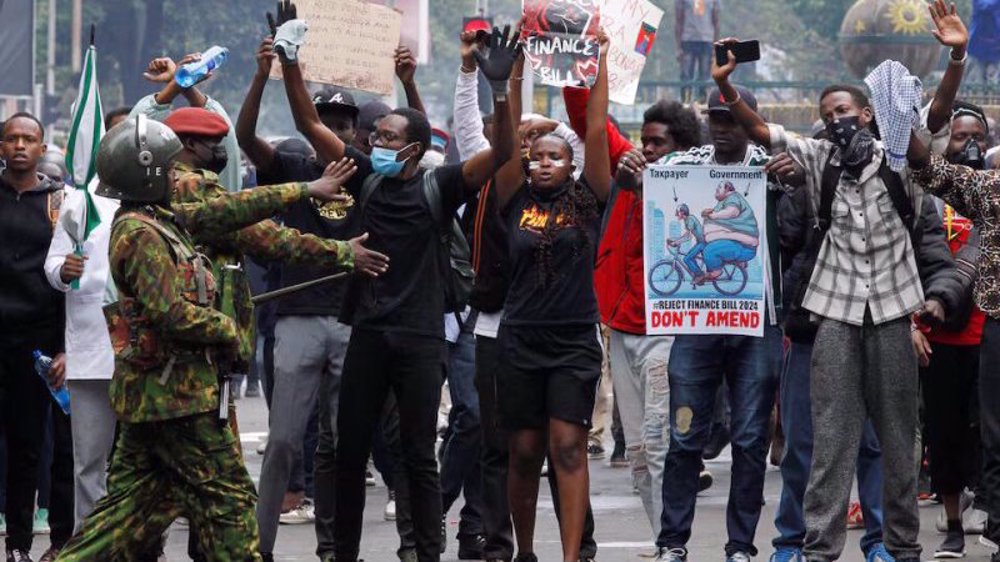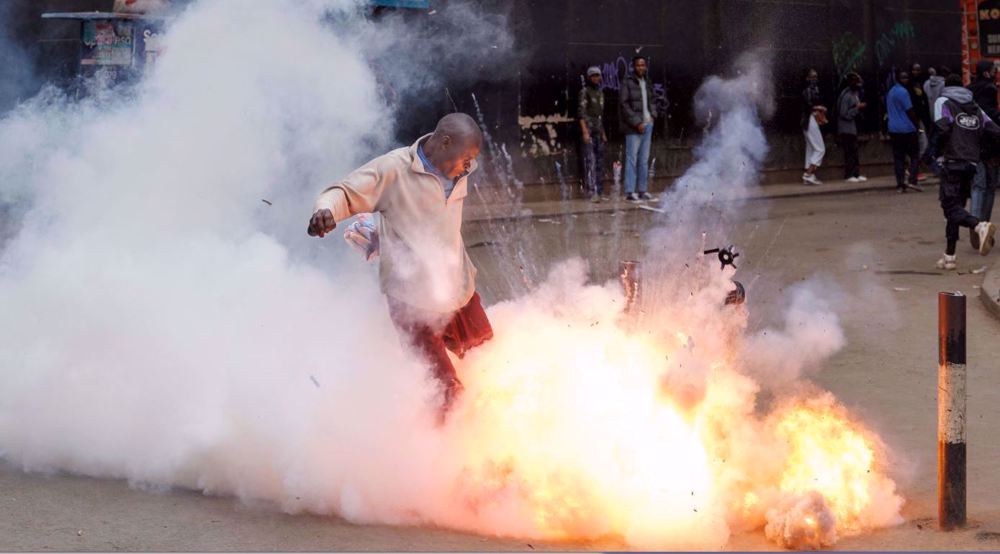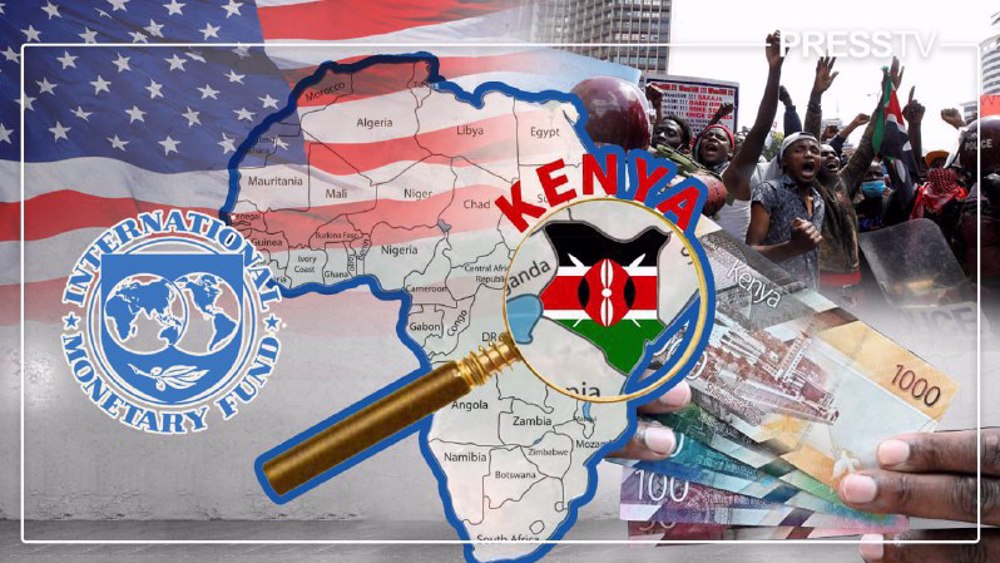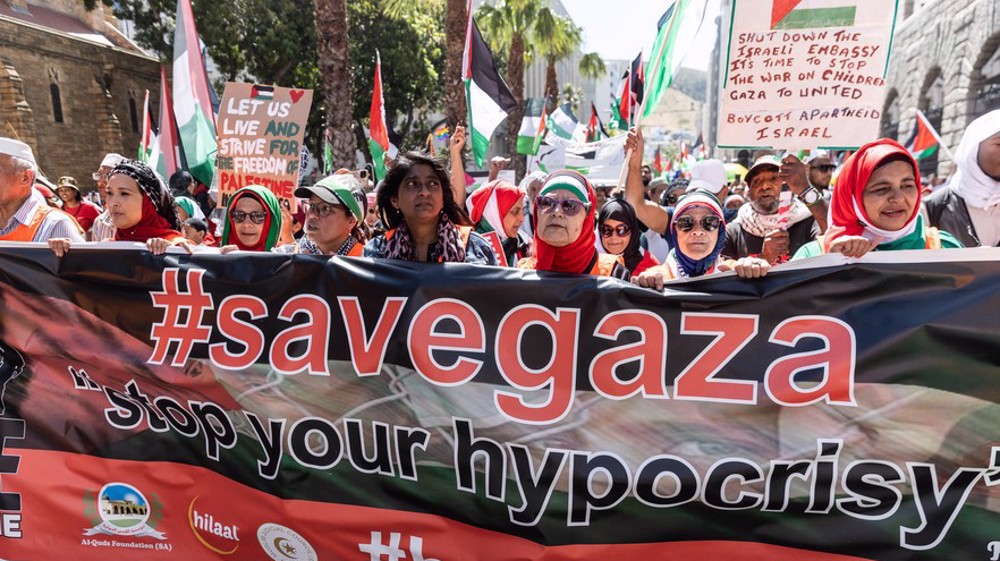Kenya bans protests against US-backed austerity imposed by IMF
Kenya has announced a ban on protests in central Nairobi, attributing the decision to concerns about purported criminal infiltration during anti-government protest rallies.
The Kenyan government on Thursday intensified its call for an end to weeks of protests and police prohibited demonstrations in central Nairobi, citing infiltration by criminal gangs.
Some activists urged people to gather with camping gear to “occupy” Uhuru Park near the city center, amid a strong police presence throughout Nairobi.
The nationwide youth-led protests, initially peaceful but later violent, broke out a month ago over proposed tax hikes in the government’s 2024 Finance Bill.
The rallies have persisted even after President William Ruto shelved the legislation and dismissed most of his cabinet.
Activists are demanding Ruto’s resignation and reforms to combat corruption and improve governance.
The protests, organized online, have led to the most significant crisis of Ruto’s two-year tenure.
"We have credible intelligence that organized criminal groups are planning to take advantage of the ongoing protests to execute their attacks, including looting,” chief of police Douglas Kanja Kiricho claimed in a statement late Wednesday.
“No demonstrations will be permitted in the Nairobi Central Business District and its surroundings until further notice to ensure public safety,” the police chief said.
Ruto’s office planned “multi-sectoral” discussions for this week to tackle to address the protesters' grievances, but by Thursday, there were no indications that they had started.
Most of the key leaders of the protests have declined the invitation, instead demanding urgent action on issues like corruption.
Protesters carried signs directly accusing the International Monetary Fund (IMF) of last year’s increases in value-added tax (VAT), fuel, and food prices, as well as the proposed tax hikes in the now-rejected 2024 finance bill.
The move aligns with the IMF's requirements for Kenya under the 2021 loan agreement, which includes a 38-month program releasing $3.9 billion, contingent on regular reviews to ensure Nairobi is complying with IMF demands: raising taxes, reducing subsidies, and cutting government waste (often interpreted as privatizing state-owned enterprises).
Protesters are aware that the austerity measures imposed by the IMF are supported by the United States, the organization’s largest shareholder, which essentially has veto power over its initiatives.
Ruto has gained favor with the US and the G7 by agreeing to deploy Kenyan troops to Haiti, taking a conservative stance in climate negotiations, and accepting financing conditions that benefit foreign investors.
At least 50 people have been killed so far in the deadly clashes between police and protesters, according to the government-funded Kenya National Commission on Human Rights.
Israel killed 70 children alone in past five days in northern Gaza
VIDEO | Pakistanis show solidarity with Gaza, Lebanon amid Israeli aggression
VIDEO | DRC sues Apple over blood minerals
Israel continues to violate ceasefire agreement with Lebanon
VIDEO | Yemen’s navy forces US aircraft carrier to retreat from Red Sea
VIDEO | Los Angeles catastrophic hellscape
West yet to fulfill NATO summit’s promise of arms supplies: Zelensky
Trump prosecutor resigns from US Justice Dept.












 This makes it easy to access the Press TV website
This makes it easy to access the Press TV website